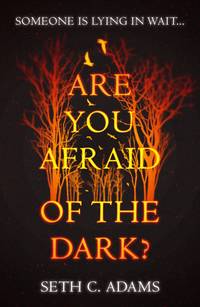Czytaj tylko na Litres
Książki nie można pobrać jako pliku, ale można ją czytać w naszej aplikacji lub online na stronie.
Czytaj książkę: «Are You Afraid of the Dark?»
Coś poszło nie tak, spróbuj ponownie później
Gatunki i tagi
Ograniczenie wiekowe:
0+Data wydania na Litres:
30 listopada 2019Objętość:
262 str. 5 ilustracjiISBN:
9780008347673Właściciel praw:
HarperCollins